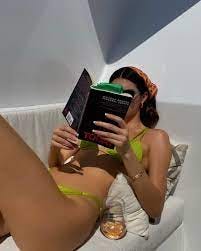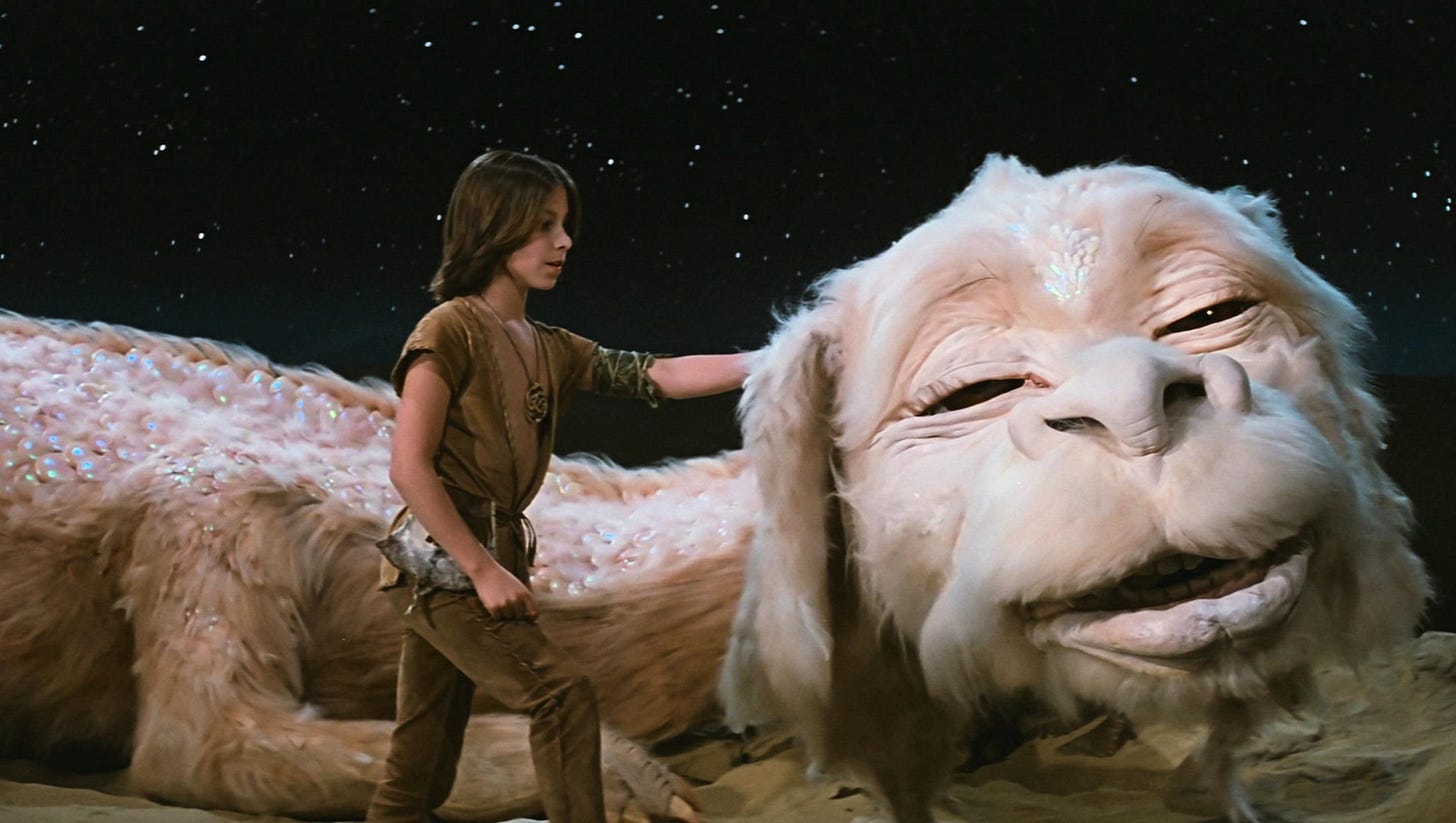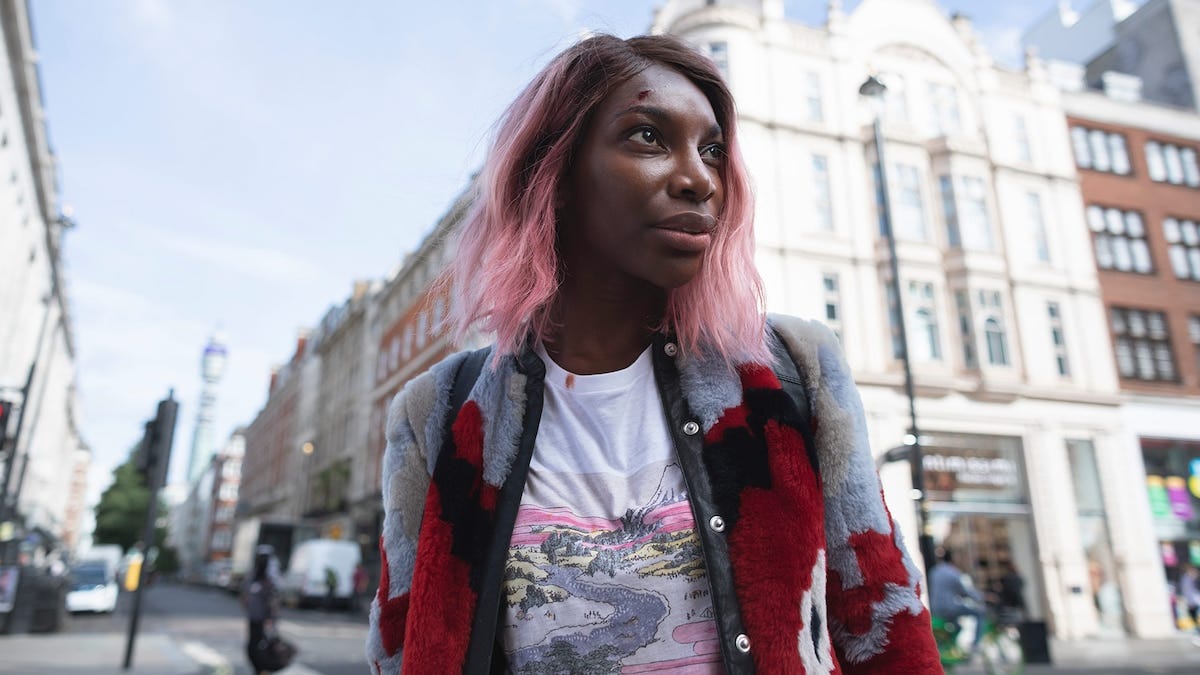Don't judge others' reading habits
The moral panic over who reads, how much and what they read
I'm writing prompted by this post on Substack Notes:
I don't want to single out this person. I'm writing about it because this is a very prevalent feeling on the internet and I want to understand and explore it. There are soooo many people out there angry at others for talking about, or even handling these precious and holy objects: books.
Here are some of the types of unhinged anger on the internet related to reading:
How much others read. Just like the person from the post, many think others lie about how many books they read. If someone reads 9, 10, or more books a month, they are discredited for lying. My question is why would they lie, and if so, who cares? Why care?
Who is reading. It's also common to discredit some type of people as faking that they are reading. For example, saying Kendall Jenner and so many other influencers around the internet don't really read books, they only pose with them. As if reading and posing are incompatible. Again, even if they are lying who cares? Why care?
How others read/ consume books. Some people also get angry at others about listening to audio books. “That's cheating, it's not really books. It's just a long podcast!”
What others read. A romance book is not a book, a #booktok book is not a book, graphic books are not books, and even bestselling books are not actually books for some.
What does all this say about how much value we put on books, what they signify and who can read them?
What books say about someone
We think of people who read as knowledgeable, intelligent, focused, interesting, wordy and high class. Books are expensive. Having a large library signifies all those things above.
Book reading is always viewed as a positive and even morally good form of entertainment, unlike any other. Watching Netflix or playing video games for five hours is problematic. Reading a book for five hours should be envied.
They are not a waste of time or mere entertainment. They are full of knowledge, they will teach you something. Reading is not wasteful because in our productivity-driven world you learn or improve by doing so. Hence, if they're simple stories, just for entertainment's sake, they are also a waste of time.
On the other hand, if you are reading a thick philosophy book from Nietzsche, or Crime and Punishment from Dostoevsky you are something of a superior being.
And that superiority may come from books taking some effort. They need time to digest. Sometimes we even are required to reference other books to read them. We need to do further research. They can “force” you to study. In our fast-paced world where immediacy is a given, they make you pause and think. They don't give you an immediate 60-second summary answer. You have to concentrate and be in the moment to read.
And maybe that's where resentment starts. It is challenging nowadays to focus. With so many quick answers and immediacy out there, it's sometimes difficult to navigate through something that will not give you that.
Still, why not acknowledge the difficulties reading can sometimes pose? Why jump to accusations and resentment?
Not so hidden sexism
Feminine things have always been seen as inferior. It's not surprising that books that are more girly or marketed towards women as romance are also not seen as "real books”.
Nowadays, especially books meant for young teen girls and overly promoted on TikTok get an unfair rap. There's so much gatekeeping. We all were children and teenagers. Our tastes develop and change. And even if they don't, so what? Let people have their easy stories and silly books.
Even worse, there's also this prejudice that if a woman is too pretty, or too put together she doesn't really read books. We have this idea of a bookworm. Someone who wasn't popular growing up and spent most of their time in the school library. But you know, they can grow up to be beautiful. And even if someone has always been popular they can also read. I don't even know why I have to explain this.
What makes me even sadder is that many times all those prejudices, gatekeeping and lying accusations are made by other women. I can understand (but not accept) it coming from men, since they have done this with basically everything: from sports to video games and movies franchises. But come on girls, we can do better.
Books are not perfect or make you an especial human being
I myself wouldn't fall into the “lying category” of 9 books a month. I read 1 or 2 (very occasionally 3) books a month. While that's already more than most people around the world, there are still many people who read a lot more.
I don't think I'm better than anyone because I read that much. I don't even think books are the perfect way to deliver stories or knowledge. Or that people who don't read are not intelligent. There are many kinds of intelligences and knowledge.
As a field biologist it's very common to undertake sampling with a local person to guide and help you. In Brazil, many of those guides are illiterate or if they aren't, they are not the type of people who read a lot. Still, they have so much knowledge! They know all about tides, animals, plants, the environment and how they behave. They know exactly how to conduct themselves in each part of the trail, how to read different signs in their environment, how to react. This is a kind of knowledge I certainly didn't and couldn't get from any book.
Stories can also be told orally in a remarkable way. Indigenous and non-western societies often keep their stories this way. By having them orally, they allow the story to be alive and continuously changing.
Even Plato argued against writing:
If men learn this, it will implant forgetfulness in their souls. They will cease to exercise memory because they rely on that which is written, calling things to remembrance no longer from within themselves, but by means of external marks.
And Socrates wrote about the incompleteness of writing:
You know, Phaedrus, that is the strange thing about writing, which makes it truly correspond to painting. The painter’s products stand before us as though they were alive. But if you question them, they maintain a most majestic silence. It is the same with written words. They seem to talk to you as though they were intelligent, but if you ask them anything about what they say from a desire to be instructed they go on telling just the same thing forever.
Also, a movie or TV show can make an incredible job translating an idea or feeling better than a book, and sometimes even YouTube videos can explain the concepts in a book better than the author did (I'm looking at you, most philosophers).
We don't have to put books on such a high ground over all other media, ways of telling stories or obtaining knowledge. They are just different.
People reading a lot is not a personal attack
Reading is lovely. It's an awesome way to learn, to be taken to a different place, to be in someone else's shoes. It generates empathy and can even change your brain.
But reading doesn't make anyone better than everyone else. If someone reads more, they just approach books differently than you. That's all. Maybe they have more time on their hands, maybe they make it a priority.
Streaming, social media and even Google searchers are also directly working towards making it harder and harder to concentrate for long on a piece of art as books require of us. And our accelerated, overworked lives make it challenging to find the needed time.
Most importantly, books shouldn't be seen as dreadful, difficult, or reserved for special individuals. If you can't read as much as you want, don't be angry or doubt others. Enjoy the ones you can read even if it takes longer for you to go through them. Let go of any goals or wanting a perfect reading life. It doesn't really mean anything in the end.
Farenheit 451 by Ray Bradbury
In this famous dystopian book, books and the houses of those who hide them are burned by the government. People are continuously surveiled and fear keeping books in their houses. It's an easy read and interesting story about autoritarism and the importance of books.
The Neverending Story (1984)
I loved this 80s classic. What could be more magical than being literally transported to a fantasy book?
I May Destroy You (HBO Max)
I have already recommended I May Destroy You, but it's so enjoyable that here it is again. It tells the story of the writer Arabella, while she navigates past trauma, based loosely on the protagonist and writer Michaela Cohen. If you enjoyed Baby Reindeer, Michaela did something similar four years ago. In my opinion, it's also better, although I truly enjoyed Baby Reindeer.











I’ve mostly missed out on the internet debates but I’m familiar with reading snobbery from academia. Capitalism turns everything, including pleasure and education, into a competition and status symbol. Depressing. On the up side, the wonderful 8-part series of Ripley on Netflix reminds me that great novels and smart stylish tv are not incompatible. Thanks for your reflections!
Such a great piece. I have to confess I scroll past these kinds of perennial arguments on social media now. As you say, there's just so much judgement. My own reading can be between 1-10 books a month - it just depends what else I'm doing. It's the same as when people ask how I find time to get "all that knitting" done - you make time for what you want to do.